Kale is a plant of the species Brassica oleracea, which includes Brussels sprouts, broccoli, cauliflower and ordinary cabbage.
It's green and has a pleasant taste. It is extremely popular, and worldwide there are variations among the varieties. It is widely used in salads and cooked in Europe, Taiwan, United States, Russia, Central and Eastern Africa. In Japan, it is a popular dietary supplement.
Kale tolerates winter temperatures, making it the ideal fresh food in winter when fresh vegetables are mostly from greenhouses. It very well tolerates freezing and an interesting fact is that after, the taste becomes better and flavorful. It is believed that the Kale is closer to wild cabbage than to its tame fellows.
Composition of Kale
Kale is extremely rich in vitamins and minerals, which makes it very suitable for people. Contains a large amount of carotenoids, vitamin C, K, A, iron, calcium, manganese, phosphorus and copper.
This type of cabbage is rich in fiber and cellulose, while with chewing and cutting, it forms sulforaphane - a substance with high antibacterial and anticancer properties. Kalle is a source of indole-3-carbinol, which stimulates regeneration of DNA into cells. Important details of Kale are that it contains vitamins and minerals that are absorbed directly by the body.
A serving of kale contains about 36 calories, 40% of the daily requirement of magnesium, 15% of vitamin B6 and calcium, 180% of vitamin A, 200% of vitamin C and 1, 020% of the whole vitamin C. These contents make it especially suitable for all diets for weight loss.
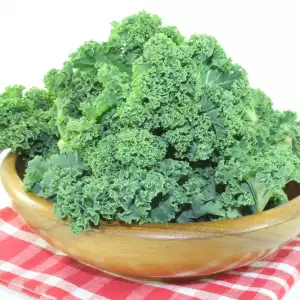
Selecting and storing kale
Kale is a winter plant. Be careful, because just like any other leafy vegetable, it has the ability to accumulate nitrate in its leaves. When grown in greenhouses, this risk increases.
Before you buy the useful vegetable, make sure of the conditions of cultivation, if possible. Those who have high acidity in the gastrointestinal tract should be careful. Kale is not found in mainstream stores, but instead it is grown very easily. Only then can you obtain the seeds of this useful product.
Cooking Kale
Kale is used raw in salads, and in dishes with heat treatment. There is a juicy and rich taste that can be complemented by strong seasonings - soya sauce, pepper, vinaigrette. Goes with strong aromatic cheese and bacon.
It is suitable for sautéing with garlic and olive oil. Serve as a salad with chicken, eggs, hard cheese and fresh herbs. Another salad that can be served is with kale, croutons and parmesan cheese. This type of cabbage cooks very easily and fortunately, there is no danger in boiling it.
Steaming and frying slightly lowers content of nutrients in kale, but in cooking, their levels are significantly reduced. Therefore, choose the first two methods of heat treatment of the plant, to get maximum nutrients from it.

Benefits of Kale
Kale is very high in calcium, which is why it is recommended for consumption by adults who have an increased risk of bone fragility. It is useful for women in menopause for the same reason. It's good to be eaten by people who suffer from osteoporosis or other diseases with reduced calcium.
Several studies have shown that the solution to the serious problem osteoporosis is actually in plant foods. Calcium in this plant, as well as regular physical exercise, protect against the development of this insidious disease.
Kale prevents skin, breast and prostate cancer. This action is possible because it assists enzymes that help detoxify the body and fights the harmful effects of free radicals.
Improves metabolism and can be included in a diet for obesity. Acts as a detoxifying agent, improves digestion and stimulates the natural peristalsis of the digestive tract. As seen, with cutting and chewing, the plant forms sulforphane that is a valuable substance, with very high anticancer and antibacterial properties.
Indole-3-carbinolate in Kale stimulates DNA repair in cells and according to studies conducted on laboratory animals, has antioxidant, anticancer and assimilability effects. The latter effect means that kale helps to prevent development of atherosclerosis.
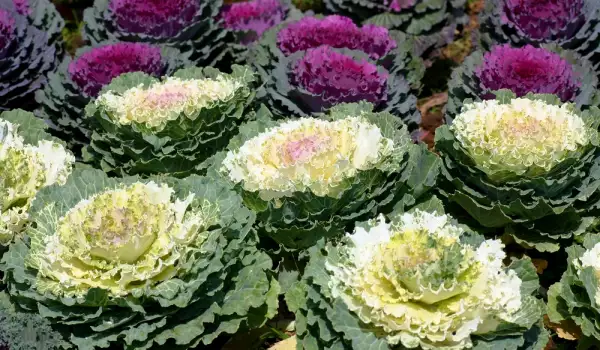
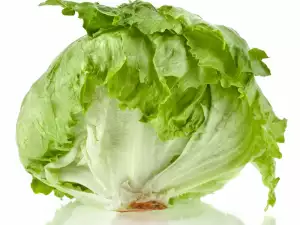
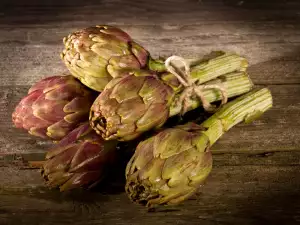
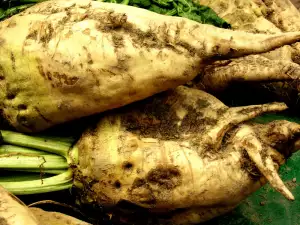

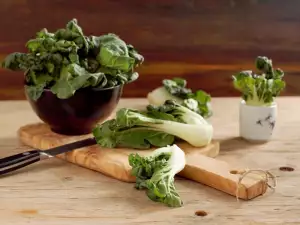

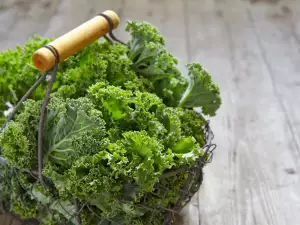
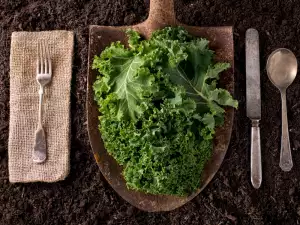


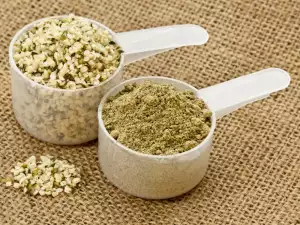
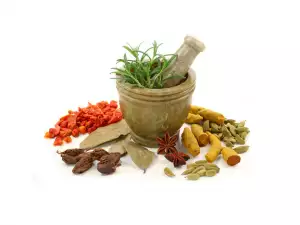







Comments